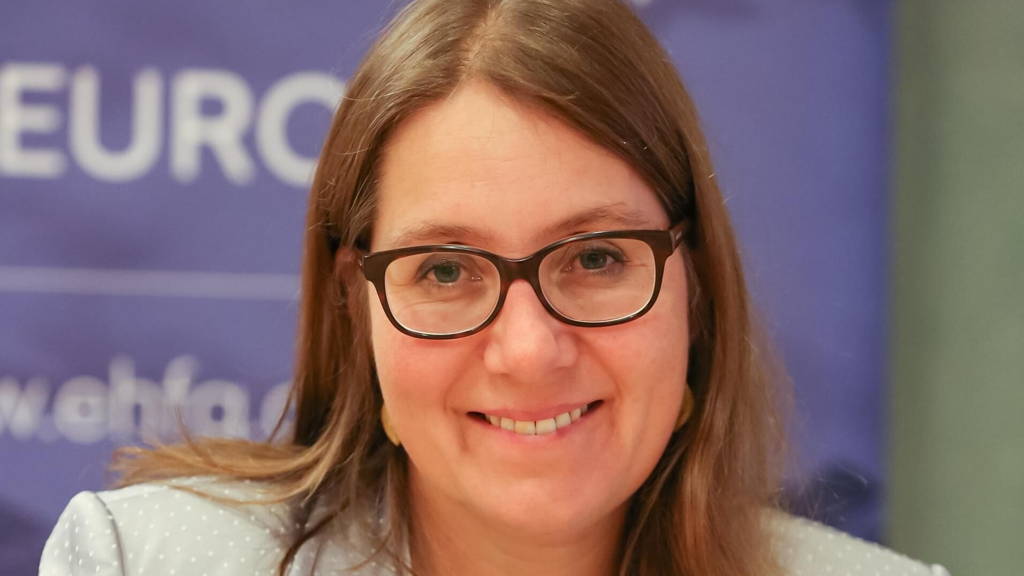When and why you oriented your interests towards health literacy?
Previously, I was working at Maastricht University in the Netherlands, and I was invited to coordinate the European Health Literacy Project between 2009 and 2012. A decade ago, it was like conquering new scientific frontiers as we were only a small group of people working on health literacy in Europe. I saw an immediate opportunity to combine my keen interests in developing citizens’ fullest potential through health and wellbeing with the need to bridge the inequality gap associated with health in Europe and beyond.
What is the definition of "health literacy" and what does it exactly mean?
Health literacy is closely linked to literacy entailing the knowledge, motivation, and competencies to access, understand, appraise and apply information to form a judgment and make decisions regarding healthcare, disease prevention and health promotion to promote quality of life during the life course. On the one hand, we focus on the ability of people and patients to manage their health and navigate in the systems. On the other hand, we wish to ensure that health providers of all sorts make it easy for people and patients to find, understand, evaluate, and use information and services. The health system itself should never be a barrier for people to get timely and appropriate help to solve their health problems.
Could you please illustrate the state of health literacy in Europe?
When we surveyed eight countries in the European Health Literacy Survey, it came as a surprise that limited health literacy was a neglected public health challenge in Europe. In the “best” country, the Netherlands, almost 30% of the respondents found it challenging to handle health information and manage their health needs. In some countries, it was more than double. New data from Denmark shows that 10% of the citizens find it very difficult, and 30% are challenged. Despite welfare societies with sound educational systems and good healthcare systems, the European Health Literacy Survey showed us that there was room for improvement.
What is digital health literacy?
Generally, digital literacy includes the capabilities that fit someone for living, learning, working, participating and thriving in a digital society and digital health literacy or eHealth literacy, concerns the specific competencies needed to manage health and wellbeing in the brave new world of technological opportunities.
Recently, Finland offered digital skills courses to its citizens
How important is it in the era of technological transformation of healthcare we experience nowadays?
Digital health literacy is an essential capacity to master in our everyday life where we are confronted with health systems being digitalized to a higher and higher degree; where the information load is overwhelming and challenging to sort out and comprehend; and where personalized solutions require informed decision-making to a broader extent than previously.
What is more critical: to teach people how to operate new technologies or to make new technologies so easy to operate that they get adopted quickly?
In the future, we must find the best balance between upgrading ourselves to the new digital reality and shaping societal systems to be user-friendly to leave no one behind. Recently, Finland offered digital skills courses to its citizens and challenged the other Nordic countries to follow their example. Facing the technological advancements by setting ambitious political goals to equip citizens with the best possible foundation is admirable. The same should be the case for organizations working in the field of health. I am convinced that health literacy will be a high-value performance indicator in the future. Already now, we see increased demand, so far, mostly in the US, where providers pursue health literacy as a professional skill and recruit staff specifically due to their health literacy-related skills.
What can countries do to strengthen the health literacy and digital health literacy capacities of the citizens?
Countries across the world are engaged in the creation of health literate societies. Germany, Norway, Portugal, and Scotland have developed health literacy strategies to push the momentum, and Austria prioritizes health literacy as one of 10 national health goals. In Denmark, the investment in health literacy is made by the governance in municipalities and the regions where interventions and co-production of health in local communities take place. Regarding digital health literacy, I believe Estonia and Taiwan are frontrunners with ambitious user-friendly systems. We need to realize and accept that digital and analogue services still go hand in hand if we genuinely wish to accommodate citizens’ needs. The human factor still beats digitalization when it comes to critical thinking, creativity, and personal communication. Machines and big data can teach us about the past, yet, we humans build the future.







